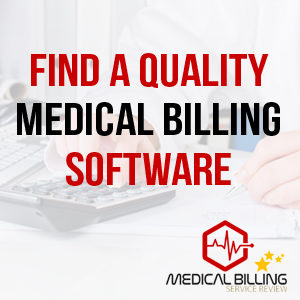
What Can Medical Billing Services Do for Modern Medical Practices in 2024?
In the ever-evolving landscape of healthcare, medical practices face numerous challenges in managing administrative tasks while providing high-quality patient care. One of the most complex and time-consuming aspects of running a medical practice is handling medical billing and revenue cycle management. In 2024, modern medical billing services have become indispensable for medical practices aiming to streamline operations, improve financial performance, and enhance patient satisfaction. This comprehensive blog explores what medical billing services can do for modern medical practices in 2024 and the benefits they offer.
Understanding Medical Billing Services
Medical billing services encompass the process of submitting and following up on claims with health insurance companies to ensure that healthcare providers receive payment for services rendered. These services include:
- Charge Entry: Recording patient services and charges accurately.
- Claim Submission: Submitting claims to insurance companies.
- Payment Posting: Recording payments from insurance companies and patients.
- Denial Management: Addressing and resolving denied claims.
- Accounts Receivable Follow-Up: Ensuring timely payment collection.
- Patient Billing and Support: Managing patient billing inquiries and payments.

The Role of Medical Billing Services in 2024
In 2024, medical billing services have evolved to incorporate advanced technology, regulatory compliance, and data-driven strategies. Here are some key roles they play in modern medical practices:
1. Streamlining Revenue Cycle Management
Efficient revenue cycle management (RCM) is crucial for the financial health of medical practices. Medical billing services streamline RCM by automating and optimizing various processes, including patient registration, charge capture, claim submission, and payment posting.
- Automation: Utilizing advanced software to automate repetitive tasks, reducing errors and administrative workload.
- Optimization: Implementing best practices and strategies to maximize revenue and minimize delays in payment collection.
- Analytics: Providing detailed insights into the revenue cycle through data analytics, helping practices identify and address inefficiencies.
2. Ensuring Regulatory Compliance
Healthcare regulations are constantly changing, and staying compliant is a significant challenge for medical practices. Medical billing services ensure that practices adhere to the latest regulations, such as HIPAA, ICD-10, and payer-specific guidelines.
- Regular Updates: Keeping up-to-date with regulatory changes and ensuring compliance in all billing processes.
- Audit Support: Assisting practices with audits and providing necessary documentation to demonstrate compliance.
- Training: Offering training programs for staff to stay informed about regulatory requirements.
3. Reducing Administrative Burden
Managing medical billing in-house requires significant time and resources. Outsourcing these tasks to professional billing services reduces the administrative burden on practice staff, allowing them to focus on patient care.
- Specialized Expertise: Leveraging the expertise of trained billing professionals to handle complex billing tasks.
- Resource Allocation: Freeing up internal resources to focus on core clinical activities and patient engagement.
- Scalability: Providing scalable solutions that can grow with the practice, accommodating increased patient volumes and services.

4. Enhancing Patient Experience
A seamless billing process contributes to a positive patient experience. Medical billing services improve patient satisfaction by providing clear, accurate billing information and responsive support.
- Transparent Billing: Ensuring patients receive clear and accurate billing statements, reducing confusion and disputes.
- Patient Support: Offering dedicated support to handle billing inquiries, payment plans, and financial counseling.
- Online Payment Options: Providing convenient online payment options for patients, improving payment collection and satisfaction.
Benefits of Medical Billing Services for Modern Medical Practices
The integration of medical billing services into modern medical practices offers numerous benefits that can significantly impact the overall efficiency and success of the practice. Here are some of the key benefits:
Increased Revenue and Cash Flow
Medical billing services help practices maximize revenue and improve cash flow by ensuring timely and accurate claim submission, reducing denials, and optimizing payment collection. Proper budgeting for the cost of medical billing services can greatly increase your return on investment.
- Higher Claim Approval Rates: Reducing claim denials and rejections through accurate coding and thorough claim reviews.
- Timely Payments: Accelerating the payment cycle by submitting claims promptly and following up on outstanding accounts.
- Revenue Optimization: Identifying revenue opportunities and implementing strategies to capture all potential income.
Improved Accuracy and Efficiency
Accurate billing and coding are essential for minimizing errors and ensuring proper reimbursement. Medical billing services improve accuracy and efficiency through expertise and technology.
- Error Reduction: Minimizing billing and coding errors that can lead to claim denials and delays.
- Efficient Processes: Streamlining billing processes to reduce administrative workload and improve turnaround times.
- Advanced Technology: Utilizing state-of-the-art billing software and tools to enhance accuracy and productivity.

Better Decision-Making with Data Analytics
Data analytics play a crucial role in modern medical billing services, providing valuable insights that support informed decision-making and strategic planning.
- Performance Metrics: Tracking key performance indicators (KPIs) such as claim denial rates, collection times, and revenue per patient.
- Financial Analysis: Analyzing financial data to identify trends, forecast revenue, and develop strategies for growth.
- Operational Insights: Gaining insights into operational efficiency and identifying areas for improvement.
Enhanced Compliance and Risk Management
Ensuring compliance with healthcare regulations is essential to avoid legal issues and financial penalties. Medical billing services help practices stay compliant and manage risks effectively.
- Regulatory Expertise: Leveraging the knowledge of billing professionals who stay current with regulatory changes and requirements.
- Risk Mitigation: Implementing best practices to minimize risks associated with billing errors, audits, and compliance violations.
- Audit Support: Providing comprehensive support during audits, including documentation and response strategies.
Scalability and Flexibility
Medical billing services offer scalable solutions that can adapt to the changing needs of a growing practice, providing flexibility and support during expansion.
- Customizable Services: Tailoring services to meet the specific needs and preferences of the practice.
- Scalable Solutions: Accommodating increased patient volumes, new services, and additional providers without compromising efficiency.
- Flexible Contracts: Offering flexible contract terms that align with the practice’s goals and budget.

Key Features of Modern Medical Billing Services
Modern medical billing services incorporate advanced features and technologies that enhance their effectiveness and value. Here are some key features to look for when choosing a medical billing service:
Comprehensive RCM Solutions
A comprehensive RCM solution covers all aspects of the revenue cycle, from patient registration to payment posting. Look for a service that offers end-to-end RCM management to ensure seamless integration and coordination.
- Patient Registration and Verification: Ensuring accurate patient information and insurance verification.
- Charge Capture and Coding: Accurately capturing charges and applying appropriate codes for services rendered.
- Claims Management: Handling claim submission, tracking, and follow-up to ensure timely reimbursement.
Advanced Technology and Automation
Technology plays a critical role in modern medical billing services. Look for a provider that utilizes advanced technology and automation to enhance efficiency and accuracy.
- Electronic Health Records (EHR) Integration: Integrating with EHR systems to streamline data exchange and reduce manual entry.
- Automated Workflows: Automating routine tasks such as claim submission, payment posting, and denial management.
- Artificial Intelligence (AI) and Machine Learning: Leveraging AI and machine learning to identify patterns, predict issues, and optimize processes.
Transparent Reporting and Analytics
Transparent reporting and analytics provide valuable insights into the performance of the billing process and the financial health of the practice. Look for a service that offers detailed and customizable reports.
- Real-Time Dashboards: Accessing real-time data and performance metrics through user-friendly dashboards.
- Customizable Reports: Generating reports tailored to the specific needs and preferences of the practice.
- Data-Driven Insights: Using data analytics to identify trends, forecast revenue, and make informed decisions.
Dedicated Support and Communication
Effective communication and support are essential for a successful partnership with a medical billing service. Look for a provider that offers dedicated support and maintains open lines of communication.
- Account Management: Assigning a dedicated account manager to oversee the practice’s billing needs and provide personalized support.
- Regular Updates: Keeping the practice informed of any changes, issues, or opportunities related to the billing process.
- Responsive Support: Providing timely and responsive support to address any questions or concerns.

Choosing the Right Medical Billing Service for Your Practice
Selecting the right medical billing service is a critical decision that can significantly impact the success of your practice. Here are some tips to help you choose the right provider:
Assess Your Needs
Begin by assessing your practice’s specific needs and goals. Consider factors such as the size of your practice, the complexity of your billing process, and your budget. Determine which services are most important to you, such as comprehensive RCM management, advanced technology, or dedicated support.
Research Providers
Research potential medical billing service providers and compare their offerings. Look for providers with a strong reputation, positive customer reviews, and a track record of success. Consider the following factors:
- Experience: Choose a provider with experience in your specialty and a deep understanding of the unique challenges and requirements of your practice.
- Technology: Ensure the provider utilizes advanced technology and automation to enhance efficiency and accuracy.
- Customization: Look for a provider that offers customizable solutions tailored to your specific needs and preferences.

Evaluate Pricing and Contracts
Evaluate the pricing structure and contract terms of potential providers. Consider whether the pricing is based on a percentage of collections, a flat fee, or a combination of both. Review the contract terms carefully to ensure they align with your practice’s goals and budget. Look for flexible contract options that allow you to scale services as needed.
Request Demonstrations and References
Request demonstrations of the provider’s technology and services to get a firsthand look at how they operate. Ask for references from current or former clients to gain insights into their experiences and the provider’s performance. This will help you make an informed decision and choose a provider that meets your needs and expectations.
In 2024, medical billing services have become essential for modern medical practices seeking to streamline operations, improve financial performance, and enhance patient satisfaction. By outsourcing medical billing and revenue cycle management to professional service providers, practices can benefit from increased revenue, improved accuracy and efficiency, enhanced compliance, and reduced administrative burden.
Choosing the right medical billing service is a critical decision that requires careful consideration of your practice’s needs, goals, and budget. By assessing your needs, researching providers, evaluating pricing and contracts, and requesting demonstrations and references, you can select a provider that offers the advanced technology, expertise, and support needed to optimize your billing process and achieve success.
Author: Mike Cynar
Mike Cynar brings buyers and sellers together by producing reviews and creating non biased webpages allowing users to share their experiences on various products and services. He and his staff write informative articles related to the medical field, legal, and other small business industries.

Leave a Reply